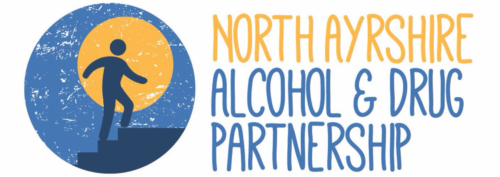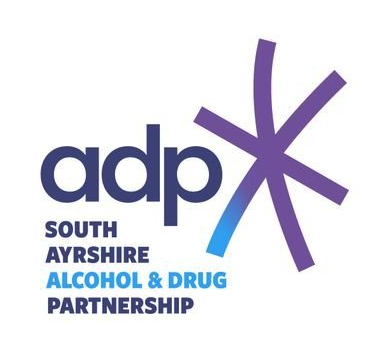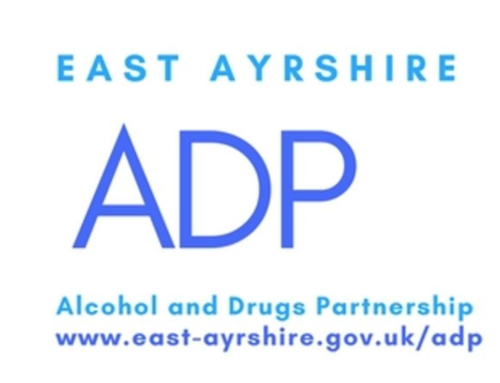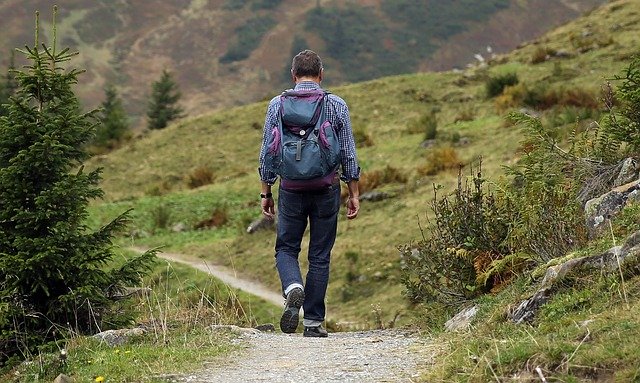If you are struggling with addiction personally, we are here to help you. Similarly, if you are watching a loved one take a downward spiral into addiction, we can help through rehab referrals.
The treatments we offer to help you overcome addiction are second to none. Your wellbeing is constantly at the forefront of everything we do. Give yourself the best opportunity to make a full recovery from your addiction by attending a drug and alcohol rehab in Ayrshire.
Request a Callback
Enter your phone number and a member of our team will call you back to discuss your recovery.
Drug and Alcohol Rehab Ayrshire Services
Discover the path to recovery with our drug and alcohol rehab Ayrshire services for those struggling with addiction.
Inpatient treatment provides a stable and supportive environment that’s, for most, essential for recovery.
Patients live onsite at the clinic, receiving 24/7 guidance, medical care and therapeutic support, and are kept away from the triggers that led to their substance misuse.
This immersion in recovery allows for a complete focus on self-improvement and wellness. With a combined approach (e.g. group therapy, individual counselling, and the development of healthy and structured daily routines), our inpatient services are designed to foster an intense healing experience.
Outpatient Possibilities
Inpatient treatment is the most comprehensive approach to treating addiction, making it the most effective route. However, if you are unable to attend an inpatient programme, various outpatient programmes are free to access and can provide a flexible alternative, most suited to those with work or family commitments.
Patients are able to attend regular therapy sessions on their terms while continuing their daily activities at home. Outpatient treatment often includes individual therapy, group counselling, and addiction education.
If an outpatient approach to treatment is more suitable to your circumstances, rest assured that accessing drug and alcohol rehab Ayrshire services are available to those who require it. There are three alcohol and drug partnership programmes across Ayrshire, which are free to access. See below to find out more.

North Ayrshire
Alcohol And Drugs Partnerships
Contact Details
Tel:
01294 315307Website:
Visit WebsiteLocation:
5th Floor West Cunningham House Irvine KA11 8NN

South Ayrshire
Alcohol And Drugs Partnerships
Contact Details
Tel:
01292 612147Website:
Visit WebsiteLocation:
South Ayrshire Alcohol & Drug Partnership County Buildings Wellington Square

East Ayrshire
Alcohol And Drugs Partnerships
Contact Details
Tel:
01563 555353Website:
Visit WebsiteLocation:
Civic Centre North 19 John Dickie Street Kilmarnock, KA1 1HW
Do I Really Need to Go to Rehab?
Knowing when you need to go to rehab can be extremely difficult. If your substance abuse is affecting your work life or home life, then chances are it is a good time to think about attending a residential rehab hospital where you will undergo an inpatient treatment programme.
When you attend a drug and alcohol rehab, you will have access to constant medical care. This means that you will always be cared for and looked after during the scary time of recovery.
Taking the first step into attending a rehab hospital can be very daunting and scary. However, if you leave your addiction untreated for too long, the consequences can be increasingly detrimental and potentially life-threatening.
Below are some questions that you can ask yourself to help you determine if your substance abuse is an addiction that needs to be treated at rehab. Try to be honest with yourself and answer these questions truthfully.
Do you drive while under the influence of alcohol or drugs?
This kind of behaviour is not only dangerous for you, but it is also very dangerous for other people who also use the roads. Being unable to control whether you drive under the influence or not is a clear sign that you should consider entering our alcohol rehab Ayrshire centre for treatment.
Is your health suffering as a result of taking drugs or drinking alcohol?
Taking drugs regularly or being addicted to alcohol can cause a lot of negative effects on your internal organs. When your health begins to suffer, you should strongly consider attending a drug and alcohol rehab hospital for treatment for your addiction.
Look out for signs of your health being affected, such as increased heart rate, breathlessness, trouble sleeping, trouble thinking clearly, constant headaches, and anything else that you may experience within your body while you are under the influence.
Is your social life being affected because of your addiction to drugs or alcohol?
A clear sign that you need help is when your friends and family are constantly telling you that you need to stop your destructive behaviour. These are people who know you best and will know when the behaviour is not you. It’s the substance abuse taking control.
It’s easy to hide away and deny that you have a problem. Listen to people and realise that you are hurting the people you love the most by keeping up your substance abuse. It’s time to get help.
Do you experience any withdrawal symptoms after you stop taking drugs or alcohol?
Withdrawal symptoms can include headaches, tremors, nausea, insomnia, irritability, paranoia, and other visible symptoms. Withdrawal symptoms are a clear factor that your body can’t cope without the substances that you’re addicted to, and it’s time to get help.
Have you lost your personal freedom because of substance abuse?
If you have been to jail or are on parole, it’s time to stop. When you lose control because of your substance abuse, it’s a clear sign that something needs to be done. If you find that you are breaking the law or breaking rules due to substance abuse, then it is time to get help for your addiction.
Are you harming yourself or others when you are under the influence of drugs or alcohol?
Research has shown that people who suffer from addictions are more likely to cause harm to themselves and are also more prone to suicide. Substance abuse can affect the body in an unnatural and negative way and can affect your mind as well as your physical body. Think about rehab now before it is too late.
Is your job suffering because of your substance abuse?
If you have lost your job to substance abuse, then this is a clear sign that you are no longer in control and need help with your addiction. When you are battling with substance abuse, it can be very hard to keep up with your professional obligations. This is very common among many addicts and a clear sign that you need help with recovery. It’s not your fault. Addiction is an illness, and you need help.
Have you tried to quit before but failed?
A large indicator of addiction is denial. People who are addicted tend to downplay their addiction and often act as if they could quit if they wanted to. However, that is not the case and simply quitting is extremely difficult – especially for long-term addicts. Rehab can help you make a full, permanent recovery.
Understanding and Managing Withdrawal Symptoms in Rehab
During the detox stage in rehab, you will experience a lot of negative withdrawal symptoms. For some people, the symptoms may be more severe than others. The benefit of detoxing in a rehab setting is that you are surrounded by constant medical care.
Completing an alcohol detox in Scotland is best when surrounded by professionals who are experienced in helping you through the detox stage.
Below is a list of some of the most common withdrawal symptoms that you may experience during the detox stage of your rehab treatment:
- Sweating
- Headaches
- Nausea
- Shaking
- Insomnia
- Vomiting
- Irritability
- Anxiety
- Agitation
- Tiredness
- Muscle pains
- Runny nose
- Diarrhoea
- Cramps
- Paranoia
- Fatigue
- Restlessness
- Nervousness
- Increased appetite
- Nightmares
- Depression
Everyone reacts differently to detoxing, and there are several factors that can determine your detoxing experience, for example, the severity and type of addiction. Some people may experience more of the above symptoms than others. However, you should know that in rehab, you are in constant professional care.
This means that you don’t need to worry at all, as you will receive medications and treatments as needed to help you through this difficult stage.
Addiction Treatment at Nova Recovery
At Nova Covery, we harness a comprehensive range of resources to address diverse addiction issues, providing a seamless journey towards recovery and a renewed sense of wellbeing.
Alcohol Addiction
When it comes to alcohol addiction, our dedicated team of medical professionals takes a personalised and case-by-case approach during the initial assessment. This is because, with alcoholism, withdrawal symptoms can vary significantly from person to person – making it essential to create individualised treatment plans that address the unique needs of the patient.
During the detoxification stage, our addiction experts and medical professionals closely monitor and manage both the mental and physical symptoms associated with alcohol withdrawal. Shaking, tremors, sweating, nausea, and loss of appetite are all carefully observed, and if needed, detox medication is administered to provide relief and alleviate these discomforting effects.
In addition to addressing the physical aspects, we also prioritise the psychological well-being of our patients throughout the withdrawal process.
Mental health can be tested during withdrawal, so it’s incredibly important that this is not ignored. Our team are trained to provide the right support and care, no matter how challenging these symptoms feel.
Mental health challenges can include (but are not limited to) feeling intense waves of shame, depression, anxiety and anger, and these emotions can feel hard to control. However, that’s precisely why attending residential treatment is the best course of action. You will be surrounded by those who genuinely understand what you are experiencing, providing the support required to overcome this initial stage.
When our patients have surpassed the most challenging phase of their withdrawal symptoms, they begin their journey of healing and restoring their mental health to boost the chance of long term recovery. Once our patients have finished their treatment plan, which includes a variety of comprehensive, evidence-based therapy sessions and counselling, they will be ready to reintegrate into society.
Along with a thorough relapse prevention plan, patients at Nova Recovery also receive a 12-month aftercare plan, free of charge. This secondary treatment package is given to all patients no matter which addiction is being treated, and it’s designed to give you the best chance of maintaining sobriety and your new life, providing continued support at the facility on an outpatient basis.
Alcohol recovery can be tough, but it is entirely possible. Find out more about alcohol addiction Ayrshire treatment.
Cocaine Addiction
When undergoing cocaine addiction treatment at Nova Recovery, individuals can expect a comprehensive approach that integrates a range of evidence-based therapies into treatment programmes. However, an initial assessment will be necessary to determine the best treatment route for the individual, as everyone’s experience with cocaine addiction will likely be different.
The first stage of rehab will include detoxing, otherwise known as cocaine withdrawal. This can be a challenging and distressing experience, characterised by various symptoms. However, the hardest and most common challenge patients face is the psychological aspects of cocaine withdrawal.
It’s normal to feel an intense craving for the drug, which can be overwhelming and persistent at times. These cravings often contribute to relapse and make it challenging for individuals to stay clean, which is why attending a rehab clinic for treatment at this stage is pivotal for many.
Additionally, patients are likely to experience severe mood swings, depression, anxiety, and irritability during withdrawal. Sleep disturbances, fatigue, and lack of energy are also common.
The treatment of cocaine withdrawal typically involves a combination of detox medications and behavioural interventions, both of which are available through our experienced team of medical professionals, who are by your side every step of the way.
Once the detox stage is over, patients then move on to the other aspects of their treatment programmes. This can include behavioural therapies, including cognitive-behavioural therapy (CBT), holistic therapy sessions, and support groups, which are essential components of treatment.
These therapies aim to address the psychological aspects of cocaine addiction, develop coping strategies, and provide support and guidance throughout the recovery process. Generally speaking, cocaine addiction tends to be more of a mental battle, and treatment plans will be tailored to address this. Patients are given the care and guidance necessary to uncover the root cause of their addictions to ensure the best chance of long term recovery.
For example, during CBT sessions, patients will learn practical strategies and skills to cope with cravings and manage difficult emotions that may arise during the recovery journey. They explore the connections between their thoughts, feelings, and actions, gaining insight into how these factors influence their drug use. By identifying and modifying maladaptive thoughts and beliefs, individuals can develop healthier coping mechanisms and make more positive choices in their lives.
Discover more helpful information and resources regarding attending our Ayrshire drug and alcohol rehab for cocaine addiction.
Cannabis Addiction
A person seeking help for a cannabis addiction should prepare themselves for a multi-faceted experience that targets physical, psychological, and behavioural aspects of addiction.
Upon entering rehab, an initial assessment is performed by our highly trained admissions team. They will work with you to carefully assess your medical history, the severity of your addiction, your unique experiences, along with your personal circumstances. This evaluation forms the basis of your individualised treatment plan, which will be entirely personalised to suit your needs.
Cannabis addiction presents unique struggles, chiefly due to its psychological nature. Some of the biggest challenges include factors such as cannabis addiction often being more about psychological dependence than physical addiction, the normalised use of cannabis in society, and the reality of co-occurring disorders for many.
Medical professionals also know this as a dual diagnosis, which refers to the presence of a mental health diagnosis as well as an addiction. This is, unfortunately, very common with cannabis dependency.
A dual diagnosis, if present, will be identified before you commence treatment. This is to ensure that your personalised treatment plan also aims to treat both aspects, boosting the likelihood of long-term recovery.
Depending on the severity and longevity of the addiction, you may experience withdrawal symptoms that can range from mild to severe. Although cannabis withdrawal is typically less physically intense compared to substances, it still presents many intense psychological symptoms that often lead people to relapse when attempting to detox outside of an inpatient rehab setting. This can include insomnia, fatigue, paranoia, intense mood changes, and what feels like relentless cravings, which are also often accompanied by physical discomfort.
One important factor to remember is that, at Nova Recovery, our medical professionals are there for you whenever you need them. They are highly trained and experienced, which means they are able to pre-empt certain stages of withdrawal and treat specific symptoms to lessen the severity as much as possible. This support, paired with the compassion and guidance given by the team, makes the detox stage manageable for many.
Once the detox stage is completed, the next part of cannabis addiction treatment typically involves various forms of treatment, from holistic sessions and individual therapy to group counselling, and cognitive-behavioural therapy (CBT), to sessions dedicated to relapse prevention and coping strategies. The goal of these treatments is to help you understand the root cause of your addiction and provide strategies to avoid relapse.
Find out more information on cannabis addiction treatment.
Prescription Drug Addiction
Upon arrival at our drug and alcohol rehab Ayrshire centre, patients will undergo a comprehensive evaluation by a team of medical professionals to assess their physical and psychological condition. This is necessary with a prescription drug addiction, as this type of dependency is often complex.
One of the most challenging phases of rehab for a prescription drug dependency is the detoxification stage. Symptoms can feel overwhelming, but our medical professionals can manage the effects of withdrawal for patients, no matter the severity.
Prescription drug addiction is a battle on two fronts – physical and psychological. Physically, the body will likely crave the drug, making it difficult for patients to resist using it. Psychologically, drugs often serve as a coping mechanism for stress, trauma, or other mental health issues, which can complicate the recovery process.
In the case of prescription drug addiction, symptoms can often range from mild (e.g., irritability, restlessness) to severe (e.g., hallucinations), depending on the type of prescription drug, the duration of addiction, and the patient’s overall physical and mental health at the time of treatment. Again, rest assured that our team are highly trained and capable of providing you with the necessary treatment.
Our inpatient treatment programmes offer a blend of therapies, which will be tailored and structured to your unique needs. This can include participating in cognitive-behavioural therapy (CBT), holistic therapy, and group therapy, among others. A combined approach to treatment often helps patients understand their addiction at a much deeper level, allowing for the ability to identify triggers and develop healthy coping mechanisms. Simultaneously, there may be a focus on physical activities and maintaining a balanced diet to help rebuild physical health and resilience.
Related News

A Guide To Keeping Up Recovery After Drug Rehab

Addiction – Addressing The Stigma
